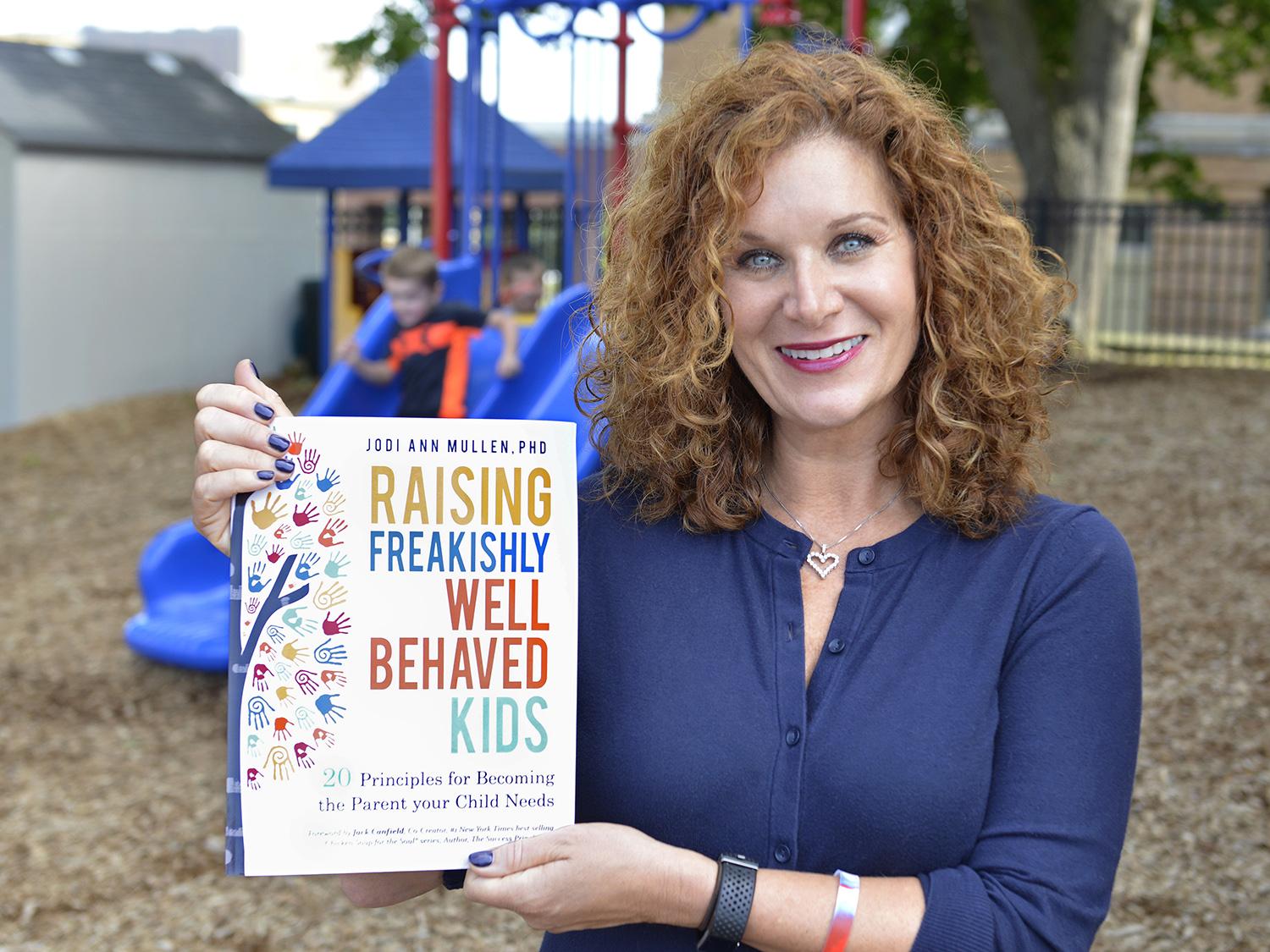Parenting principles -- In her new book “Raising Freakishly Well Behaved Kids: 20 Principles for Becoming the Parent Your Child Needs,” SUNY Oswego counseling and psychological services professor Jodi Mullen cultivates parenting principles from research, from working as a play therapist and from children themselves.
SUNY Oswego counseling and psychological services professor Jodi Mullen has instilled what she has learned from research, working as a play therapist, and from children themselves in a new book, “Raising Freakishly Well Behaved Kids: 20 Principles for Becoming the Parent Your Child Needs.”
“I have training and preparation as a mental health counselor and a play therapist for 25 years,” Mullen explained. “I had that knowledge before I began parenting, but there were so many lessons to learn -- and I learned from kids.”
The ability to gain knowledge and insights from the work she does and the background she has made it “something that I just had to write,” said Mullen, who developed SUNY Oswego’s play therapy certificate program and founded an Integrative Counseling Services practice that now has four locations.
As she developed in the profession, one thing Mullen quickly learned is that often “children are our teachers” in this field, she said. “In particular, children have taught me things in the way they are engaged with me, or not, in play therapy, which shows us the way they view the world.”
Being able to learn children’s points of view changed the way she interacted in her work, with her own children and with the world in general.
Productive podcast
The book has been a long time in development. Starting a podcast titled “Freakishly Well Behaved Kids” helped her frame her ideas as well as to pare down the number of principles to include.
“I didn’t want to overwhelm. It gave me a more feasible number,” Mullen said of the podcast. “It also helped in figuring out ways to talk about things and get it out of my head and get it out there.”
Doing a podcast also helped her figure out how to articulate actions and tactics that seem simple but are actually complex. Just reading to a child, she said, has so many benefits beyond what people realize: It means parent and child are close and connected, the children are learning language and different emotional expressions, it is soothing to kids and it becomes a ritual that establishes consistency and stability.
Mullen's new book also translates seemingly simple, yet complex, concepts like what she terms “say no to me.” In that, she means that learning to say “no” to your child -- as difficult as it sometimes can be -- helps them learn to establish boundaries, gets them used to hearing “no” in other settings as they grow up and teaches them that it is important for them to say “no” sometimes as well.
Developing the book on flexible principles was an important emphasis. “The principle will stay the same but the actions will change as the child develops,” Mullen said.
“A part of this book is admitting that even though I know all this stuff, I still make at least one parenting mistake a day,” said Mullen, who has two children with her husband Michael, a visiting assistant professor of health promotion and wellness at SUNY Oswego. “And I think all of us as parents are doing our best. The mistakes we make tend to come out of compassion and love. I think it’s important to have that come out of the book.”
The book includes interactive elements so parents can come up with some solutions and styles on their own. “There’s an inventory to see what you as a parent are doing well and what your child is doing well,” Mullen said. “Sometimes we overlook what we’re already doing well as a parent.”
The book’s foreword comes from Jack Canfield, known worldwide for co-creating the “Chicken Soup for the Soul” series and as the author of “The Success Principles.” In the foreword, he wrote: "The brilliance and uniqueness of this book is that it doesn’t rely on advice and theories for adults, but listens to those whom we are attempting to help: our children!"
While most of her previous books are academic-oriented, this one aims at a general audience, and carries forward an important mission for Mullen.
“There are about 178 million parents in the United States alone, so I felt this book was very important because parents are really the change agents in people’s lives, and the ripple effect can really change the world,” Mullen said. “When people feel loved, they act accordingly.”




